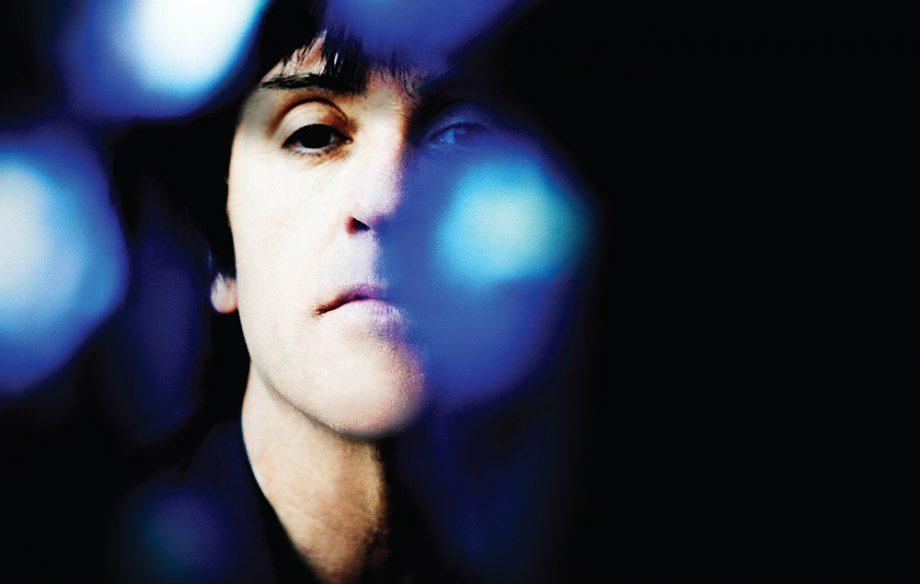Johnny Marr Call The Comet review: New album is steeped in chilly yearning
lf Marr and Morrissey ever did record together again, as fans often dream, the musical gulf between them now seems as unbridgeable as the libertarian provocations of Marr’s old friend, and the future-facing utopian heard here

Your support helps us to tell the story
From reproductive rights to climate change to Big Tech, The Independent is on the ground when the story is developing. Whether it's investigating the financials of Elon Musk's pro-Trump PAC or producing our latest documentary, 'The A Word', which shines a light on the American women fighting for reproductive rights, we know how important it is to parse out the facts from the messaging.
At such a critical moment in US history, we need reporters on the ground. Your donation allows us to keep sending journalists to speak to both sides of the story.
The Independent is trusted by Americans across the entire political spectrum. And unlike many other quality news outlets, we choose not to lock Americans out of our reporting and analysis with paywalls. We believe quality journalism should be available to everyone, paid for by those who can afford it.
Your support makes all the difference.★★★★☆
Download this: The Tracers, Hi Hello, New Dominions, My Eternal
Johnny Marr has taken his time declaring independence. The title of his autobiography, Set the Boy Free, described both the world-expanding imaginative jolts rock gave him in the 1970s, and the long process of shuffling centre-stage.
Though Marr got something like a free pass in the early, freelance guitarist days of his post-Smiths career, as Morrissey proved initially unequal to bearing the full weight of the band’s legacy on his shoulders, that balance has now decisively tipped. The voice of The Smiths has unpalatably inverted their values, attacking - not comforting - the vulnerable, and seems musically stymied.
Call the Comet is meanwhile Marr’s third record as the proud singer of expansive songs which declaim a more positive vision. The dystopian possibilities of Donald Trump’s election were at the front of his mind as he wrote it: Call the Comet responds by rifling through the dystopias and utopias of the age of nuclear paranoia in which he grew up. This is a record steeped in both the chilly yearning of Bowie’s “Berlin” albums and Ziggy Stardust’s glam apocalypse, as well as the science-fiction paperbacks by the likes of JG Ballard which inspired them.
Neil Young’s eco-fable “After the Goldrush” is a close cousin to “The Tracers”; the most convincing song here about some sort of transubstantiation for humanity at “the edge of the world”, where we can “evaporate”.
The muscle of the synth-powered 1980s “Big Music” which followed Bowie, early Simple Minds especially, also thrums through Call the Comet. Typically, “The Tracers” finds room in the rushing momentum of its final, wordless chorus for Rolling Stones harmonies, too.
The chiming synths and urgently climbing guitars are at their most euphoric on “My Eternal”. “All the saints are underground,” Marr sings, but the music conjures visceral visions of darting between future Manchester skyscrapers, as if in an optimist’s version of Blade Runner. Marr’s sources date him. So does his vision of rock as a transformative tool.
And then there is “Hi Hello”, an unexpectedly comfortable rest-stop in The Smiths’ sound-world. It’s a place as personal and complete as Jimmy Page’s thunderous production palette with Led Zeppelin, has few other parallels, and is Marr’s main claim to greatness. Perhaps for this reason, he has been reluctant to revisit it.
The lyrics of “Hi Hello”, though, consider shifting patterns of time and place while always seeming rooted in a particular spot in Marr’s memory, where the bittersweet, sometimes dour jangle of his guitar on The Queen Is Dead is all he can hear. Even his vocal melody faithfully shadows and displaces Morrissey’s. The cresting strings and synths materialise directly from “There Is A Light That Never Goes Out”.
If Johnny Marr and Stephen Morrissey did ever record again, though, as Smiths fans still sometimes dream, the musical gulf between them now seems as unbridgeable as the libertarian provocations of Marr’s old friend, and the future-facing utopian heard here.
Join our commenting forum
Join thought-provoking conversations, follow other Independent readers and see their replies
Comments